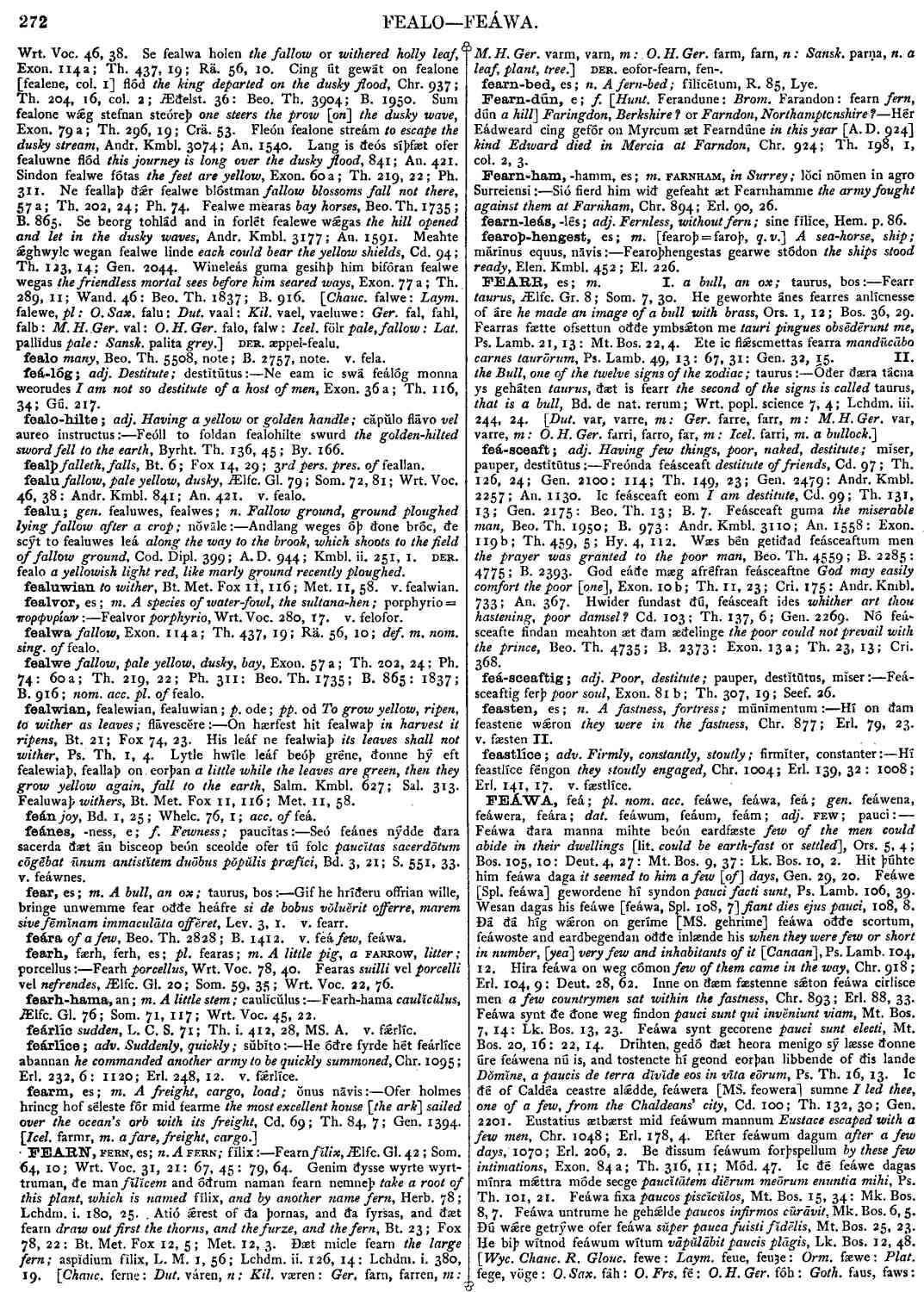feá-sceaft
- adjective
-
Freóndafeásceaft
destitute of friends,
- Cd. 97 ;
- Th. 126, 24;
- Gen. 2100: 114 ;
- Th. 149, 23;
- Gen. 2479: Andr. Kmbl. 2257 ;
- An. 1130 .
-
Ic feásceaft eom
I am destitute,
- Cd. 99 ;
- Th. 131, 13 ;
- Gen. 2175: Beo. Th. 13 ;
- B. 7 .
-
Feásceaft guma
the miserable man,
- Beo. Th. 1950 ;
- B. 973: Andr. Kmbl. 3110 ;
- An. 1558: Exon. 119 b ;
- Th. 459, 5;
- Hy. 4, 112.
-
Wæs bén getiðad feásceaftum men
the prayer was granted to the poor man,
- Beo. Th. 4559 ;
- B. 2285: 4775 ;
- B. 2393 .
-
God eáðe mæg afréfran feásceaftne
God may easily comfort the poor [one],
- Exon. l0 b ;
- Th. 11, 23;
- Cri. 175: Andr. Kmbl. 733 ;
- An. 367 .
-
Hwider fundast ðú, feásceaft ides
whither art thou hastening, poor damsel?
- Cd. 103 ;
- Th. 137, 6;
- Gen. 2269 .
-
Nó feásceafte findan meahton æt ðam æðelinge
the poor could not prevail with the prince,
- Beo. Th. 4735 ;
- B. 2373: Exon. 13 a ;
- Th. 23, 13;
- Cri. 368 .
Bosworth, Joseph. “feá-sceaft.” In An Anglo-Saxon Dictionary Online, edited by Thomas Northcote Toller, Christ Sean, and Ondřej Tichy. Prague: Faculty of Arts, Charles University, 2014. https://bosworthtoller.com/10187.
Checked: 1